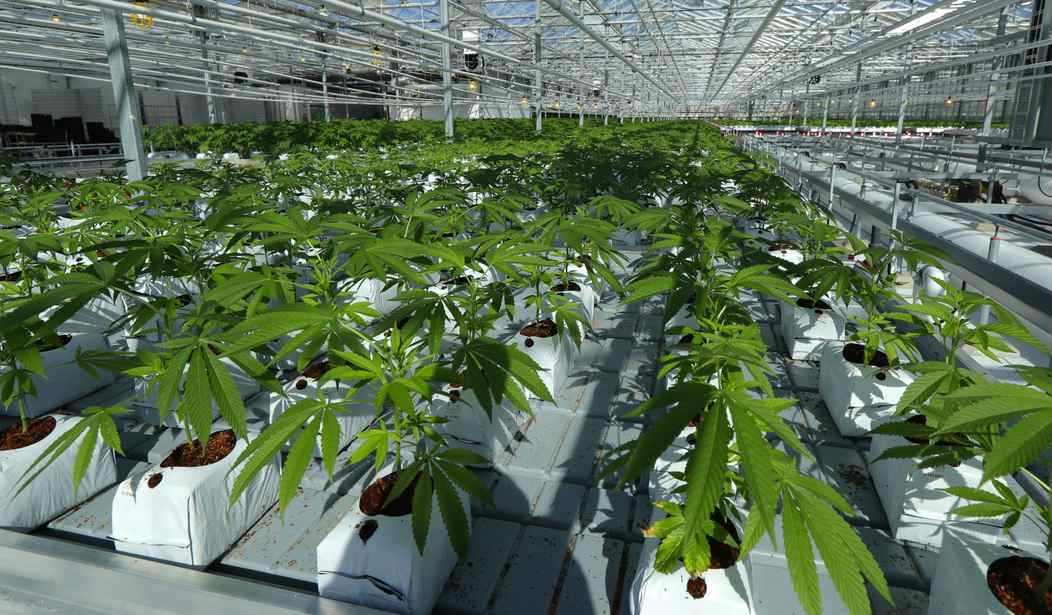National Organization for the Reform of Marijuana Laws Deputy Director Paul Armentano condemned a reminder of U.S. border policy as “irrational,” but suburban Detroit teenagers in the early 1970s knew that before crossing the Ambassador Bridge or driving through the tunnel into Canada they had to clean their ashtrays and also vacuum car seats and floors. The discovery of even a marijuana seed or stem could mean arrest at the border.
That’s a lesson Canadian pot smokers and industry investors need to remember before trying to cross into the United States, although marijuana goes legal in their country this Wednesday. A violation could result in being permanently banned from the U.S. But Canadians should worry about more than evidence of marijuana use.
However, it’s more than seeds and stems that need worry Canadians. They could be barred from the USA because of their investment portfolios.
U.S. Customs and Border Protection made that clear in a September memorandum that reminded Canadians that selling, carrying, and even smoking marijuana are all federal crimes in America.
“Generally, any arriving alien who is determined to be a drug abuser or addict, or who is convicted of, admits having committed, or admits committing, acts which constitute the essential elements of a violation of (or an attempt or conspiracy to violate) any law or regulation of a state, the United States, or a foreign country relating to a controlled substance, is inadmissible to the United States,” the memorandum reads.
“As marijuana continues to be a controlled substance under United States law, working in or facilitating the proliferation of the legal marijuana industry in U.S. states where it is deemed legal or Canada,” the statement concludes, “may affect admissibility to the U.S.”
Since Canadian marijuana smoking is legal, Armentano vilified the U.S. policy as not only irrational but also as a “discriminatory, inane, draconian” and even “backward-looking policy.”
“This is a policy that unduly penalizes tens of thousands of Canadians who pose no health or safety risk to the United States. Let’s be clear: these are people engaged in activity that is legal in their home country of Canada — and it is activity that is also legally regulated in a majority of U.S. states,” Armentano said.
“Further,” he added, “to inappropriately classify those who are either employed or simply have invested in the Canadian cannabis industry, an industry that has been legal in Canada for well over a decade already, as drug traffickers fails to pass the smell test.”
As anyone who lives in a weed-legal U.S. state will tell you, nothing smells like smoked marijuana. A CBP-trained weed-sniffing dog can smell it in a car for weeks after a joint was lit.
“Our officers are not going to be asking everyone whether they have used marijuana, but if other questions lead there or if there is a smell coming from the car they might ask,” Todd Owen, executive assistant commissioner for the Office of Field Operations, said to Politico.
However, Canadians, even if they are pot-free, who work or invest in the nation’s soon-to-be legal pot industry need to watch what they say to CBP agents at the U.S. border.
Asking what you do for a living is one of those routine questions agents at the U.S.-Canadian border ask in a monotone voice. A wrong answer, which would be telling the man or woman in uniform that you work, or invest, in Canada’s pot industry could stop you from entering the United States forever.
“We don’t recognize that as a legal business,” Owen said. “If you lie about it, that’s fraud and misrepresentation, which carries a lifetime ban.”
It happened to Sam Znaimer, a Canadian pot industry venture capitalist who told CTV News in July that he is banned from the United States after admitting – during a four-hour interrogation – his investments in U.S. marijuana companies.
“I was truly shocked by what happened to me,” Znaimer said.
Thousands of Canadian marijuana industry workers and investors could face the same fate.
Immigration lawyer Len Saunders said one of his Canadian clients is under a lifetime ban because he admitted to being part-owner of a Colorado building that houses a legal marijuana store.
“Some people are caught off guard,” Saunders said. “They think it’s legal in Washington state, which it is. It’s going to be legal in Canada, so what’s the big deal? Why not admit to the officer at the border that you’ve invested in a cannabis company in California?”
It’s possible – and expensive – for a Canadian to get out from under a ban on entering the United States. Applying for a waiver is paperwork-intensive, Saunders said, can take up to five years, and costs $585.
So what’s a Canadian in the marijuana business to do?
“Either stop traveling to the U.S.,” Saunders said, “or get out of the business.”









Join the conversation as a VIP Member